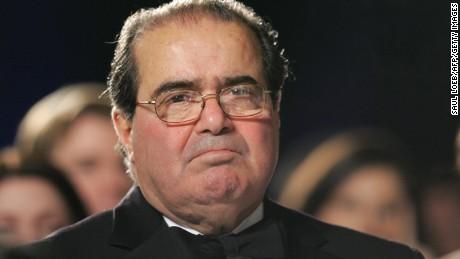 It is one of the unhappy incidents of the federal system that a self-righteous Supreme Court, acting on its Members’ personal view of what would make a ‘more perfect Union’ (a criterion only slightly more restrictive than a ‘more perfect world’) can impose its own favored social and economic dispositions nationwide.
It is one of the unhappy incidents of the federal system that a self-righteous Supreme Court, acting on its Members’ personal view of what would make a ‘more perfect Union’ (a criterion only slightly more restrictive than a ‘more perfect world’) can impose its own favored social and economic dispositions nationwide.
The Court must be living in another world. Day by day, case by case, it is busy designing a Constitution for a country I do not recognize.
“Persuade your fellow citizens it’s a good idea and pass a law. That’s what democracy is all about. It’s not about nine superannuated judges who have been there too long, imposing these demands on society.”
His body was still warm. The funeral arrangements had not began or the cause of death yet established. No matter, as vultures circling a dead animal, politicians of both parties started the partisan attacks. A great jurist and an exceptional person had unexpectedly passed away.
Antolin Scalia was born on March 11, 1936 in Trenton, New Jersey. A son and only child of an Italian immigrant and an Italian-American woman, he acquired at an early age the values of the European settlers of the time, achievement through hard work and sacrifice, values that were the core of his conservatives views. His deep religious beliefs and conservatism were developed further when attending a Jesuit run military academy. He went on to graduate Valedictorian and Summa Cum Laude from Georgetown University and Harvard law school. He was appointed to the Supreme Court by President Reagan in 1986.
During his tenure, his opinions, both in the majority or dissent, will be studied by law students for decades to come. His brilliant legal mind and ability to synthesize a legal thought was recognized by all, including his philosophical opponents. Another facet of his personality, less known, was his affable disposition with everyone, his great sense of humor and his modesty. His best friend in the highest court and life happened to be justice Ruth Bader Ginsburg, the most radical liberal in SCOTUS and legal adversary. What a contrast with many so called “journalists” that rejoiced in his death to the extreme of comparing him with the “devil”.
What a difference with the rapid response of Mitch McConnell and President Obama making his replacement a political partisan issue. A Supreme Court nominee should not be taken lightly or subject to ideological differences. Both party’s leaders and presidential aspirants demonstrated hypocrisy at its worse. Not only their declarations were ill timed, they were also false.
The Constitution is very clear on these appointments, and there is no room for misinterpretation. The Article II, Section 2, Clause 2 reads; ‘the President shall nominate and by and with the advice and consent of the Senate shall appoint”, among others, Judges of the supreme court. It is under the Senate’s purview to “advise” the president of the timing of a political battle before the election, as it is also a right of the president to nominate when he desires. There are no time limits in the Constitution for a nomination and, contrary to Obama’s declarations, a deadline for the Senate to consent or not to the appointment. Implicit though, is the duty of Senators to assess and vote on the candidate, not deny outright.
The insincerity of the pronouncements of Senator Schumer saying that rejecting a candidate in the last year of the presidency is unacceptable, when he did the same eighteen months before President’s Bush time in office, and Obama’s objection to a “filibuster” now when he did just that as a Senator are shameful. The same is to be said of the republicans, who at those times took the opposite position.
The reason why even if every nomination to the SCOTUS is very important and should be given time and due consideration, this one is crucial is not only that it might alter the present balance of the court, but that Judge Scalia could be the last entrenched defense of interpreting the Constitution as the forefathers intended. He pioneered “originalism”, or the strict understanding of the originators wishes, and not a dynamic document to be changed as time and culture changes.
I am not an attorney, much less a constitutional expert, but I interpret Scalia’s judicial philosophy as not denying the need for change, but defending the role of “we the people” in these changes. Though difficult there is a system in place to amend our main law, and in Scalia’s opinion any alteration could and should be made by the Congress through laws and not by nine Judge appointees. The three quotes that I chose to illustrate this writing makes this point clearly. Changing SCOTUS balance to one of judicial activism might lead us to a requiem of our Constitution, and another nail in the coffin of our country.
